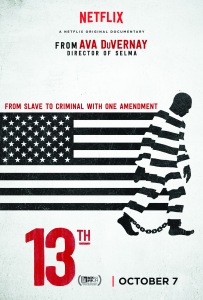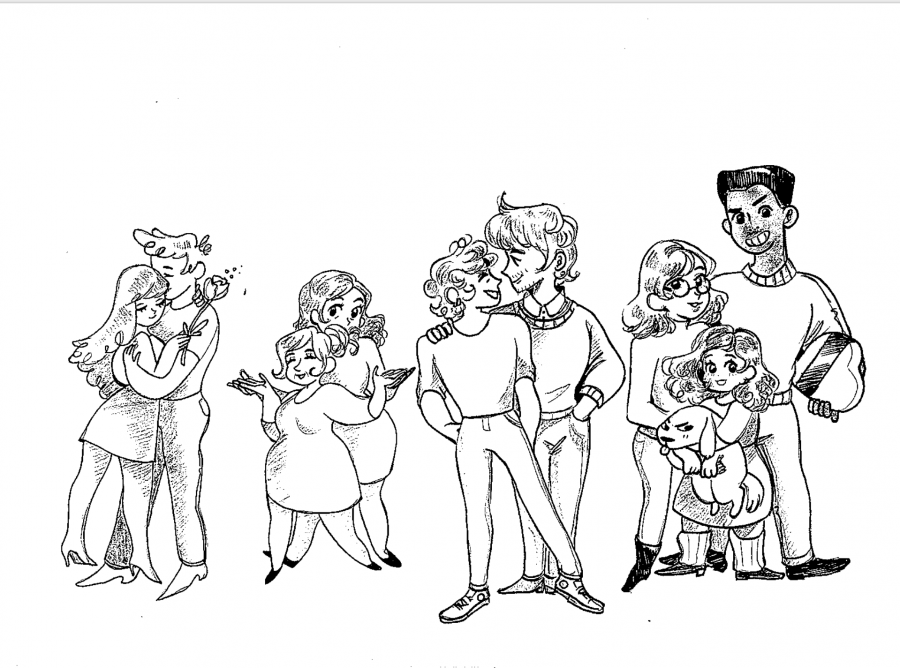By Kallie Gregg
Staff Writer
Since President Trump’s election in November, cities across the country have hosted protests on numerous issues—from cabinet picks, to the President’s comments about women, to the executive order banning travel to the U.S. from predominantly Muslim countries.

This heightened attention means that the national consciousness about protests and political engagement is growing. One way that we engage and familiarize ourselves with these political or rebellious narratives is through popular media.
Dr. Jeffrey Zacks, author of “Flicker: Your Brain on Movies”, explained in a 2015 Vice magazine article that we are highly emotionally and physically affected by film. His research found that the brain activity of audience members during a movie viewing often mirrors the physical and emotional states of the characters.
“People spend a lot of time and emotional energy on stories, on experiencing stories, and understanding how that works is therefore a really important problem,” he wrote.
Suzanne Leonard, a professor at Simmons College, also sees cinema as a potential bridge between entertainment and politics.
“Film really does have the ability to encourage empathy and understanding,” she said.
Although movies are not substitutes for activism or political engagement, they can serve as educational tools or calls to action.
Leonard explained that movies give audiences an “insight into stories they might not otherwise have access to.”
“People [can] change their causes because they learned something,” she added.
Popular culture can impact cultural viewpoints and standards. For example, the “Will and Grace effect” is widely credited with improving American views towards homosexual relationships.
Vice President Joe Biden told the Washington Times in 2012 that the former NBC show, “probably did more to educate the American public than almost anything anybody has ever done so far [about the LGBT community].”
Thus, bearing in mind the potential for emotional and political resonance in cinematic narratives, here is a movie recommendation list for both activists and the newly politically engaged.
Action/Blockbusters
“Captain America: The Winter Soldier” (Rated PG-13, available for rent on Amazon Instant Video, $3.99)
While this Marvel film can be considered as a well-crafted action movie, it earns its place here as a personal favorite. The character of Captain America/Steve Rogers (played here by Chris Evans) was invented by two Jewish comic artists during World War II with the express purpose of motivating the American public to aid victims of the war in Europe.
The modern iteration is more nuanced, but far from being a rule-adhering national symbol, Captain America has always been more loyal to his own moral compass than his sense of patriotism. “Winter Soldier” argues that there are times when dissent is necessary, and perhaps the most heroic action is knowing not to follow orders that are unjust.
Other picks: “Rogue One: A Star Wars Story”, “District 9”, “Mad Max: Fury Road”, “Arrival”, “Inglorious Basterds”, “Desierto.”
Family-friendly Movies
“All the President’s Men” (Rated PG, available for rent on Amazon Instant Video, $3.99)
The classic depiction of Bob Woodward and Carl Bernstein’s uncovering the Watergate scandal that led to President Nixon’s impeachment and resignation does not necessarily involve “rebellion” in the traditional sense, but it deserves a place here nonetheless.
As reporters for the Washington Post, Robert Redford’s Woodward and Dustin Hoffman’s Bernstein put their lives and their careers at risk to do what good journalists should do—tell the truth. In an age of “fake news” and “alternative facts,” their work is a heady reminder of what the media is capable of, and why supporting worthwhile journalism is important.
Other picks: “Hidden Figures”, “Wall-E”, “Ferris Bueller’s Day Off”, “Zootopia”, “Disney’s Robin Hood.”
Comedy/Romance
“Obvious Child” (Rated R, available for streaming with Amazon Prime).
“Obvious Child” picks a sensitive subject to craft a comedy out of—a young woman finds herself pregnant after a one-night stand and needs to get an abortion—but it does so with wit and sensitivity. The brightness and levity of Jenny Slate in the starring role keeps the movie from being melancholy, but the reality of her situation and her struggle will likely resonate with many women.
Planned Parenthood plays a large role in “Obvious Child,” highlighting the similar role it does in the lives of millions of real women. The film does not seek to make an ideological statement, only to present its situation without judgment or stigmatization. The result is earnest and sympathetic.
Other Picks: “Adam’s Rib”, “Charlie Bartlett”, “The Edge of Seventeen”, “Carol”, “Thelma and Louise”, “Ghostbusters” (2016), “Grandma.”
Drama
“Children of Men” (Rated R, available for rent on Amazon Instant Video, $3.99)
Alfonso Cuarón’s dystopian thriller was underappreciated at its 2006 release, but has continued to garner praise over the last decade. More realistic and more heart-wrenching than most apocalypse movies, “Children of Men” is set in near-future London. There is a distressing familiarity to the film’s depiction of a society on the brink of collapse, descended into xenophobia and violence.
The story of depressed civil servant Theo’s (Clive Owen) reluctant turn to rebellion is at times hard to watch, but both narratively and cinematically striking. Cuarón also made “Children of Men” to be implicitly political—it should not be lost on the audience that the film’s other hero, Kee (Clare-Hope Ashitey), is an undocumented immigrant.
Other picks: “Brokeback Mountain”, “To Kill a Mockingbird”, “Moonlight”, “The Lobster”, “Spotlight”, “Selma”, “Erin Brockovich.”
Documentaries
“13th” (Rated TV-MA, available to stream on Netflix Instant)
Ava DuVernay’s excellent documentary is nominated for an Oscar this year, and should it win, it will be absolutely deserved. Named for the thirteenth amendment to the U.S. Constitution, which outlawed slavery in the country, “13th” considers the intersection between race and the criminal justice system.
The film opens by explaining that 25 percent of the people in the world who are incarcerated are incarcerated in America, and continues from there. Although “13th” is not an easy watch, its subject matter is absolutely vital, and DuVernay does an admirable job in telling it. “13th” is quickly becoming required viewing for understanding structural racism in America, whether or not it wins an Academy Award later this month.
Other picks: “An Inconvenient Truth”, “Miss Representation”, “Paris is Burning”, “Winter on Fire: Ukraine’s Fight for Freedom”, “Harlan Country USA.”














